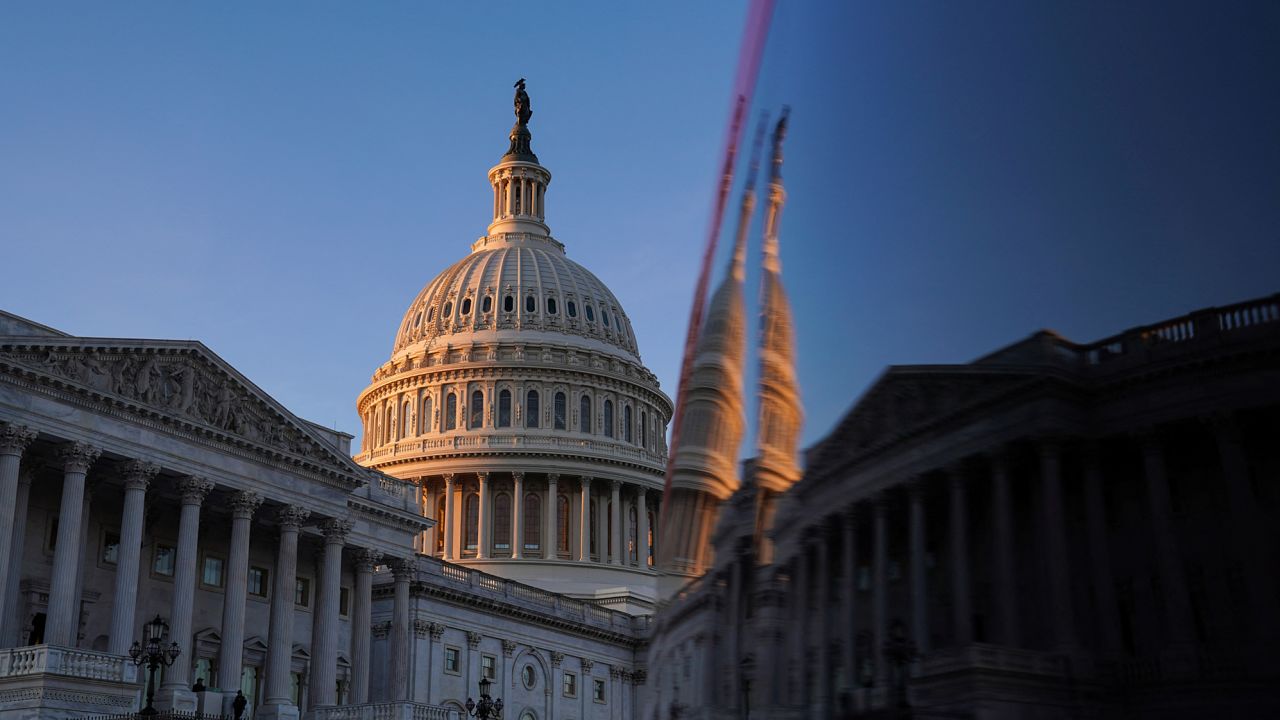Already a subscriber? Make sure to log into your account before viewing this content. You can access your account by hitting the “login” button on the top right corner. Still unable to see the content after signing in? Make sure your card on file is up-to-date.
Top US lawmakers have sent a letter to the CEO of a US-based drone company, raising concerns that the company may be helping a popular Chinese drone company evade US sanctions.
Let’s bring you up to speed: The House China Select Committee is a bipartisan group of US lawmakers investigating China’s influence and activities that may threaten US national security and economic interests. Regarding DJI, the committee is probing the Chinese drone maker’s ties to the Chinese Communist Party (CCP) and potential security risks posed by DJI’s technology in the US.

What’s the deal: Lawmakers on the committee have raised concerns that Anzu Robotics is licensing technology from Chinese drone maker DJI, which could help DJI bypass US restrictions. Anzu drones are manufactured in Malaysia under a unique arrangement that reportedly cuts direct financial ties to DJI, thus creating no issues. Despite this, lawmakers say that Anzu’s “Raptor T drone,” which closely resembles DJI’s “Mavic 3,” could be a rebranded DJI product with identical hardware and firmware, enabling DJI to evade US sanctions and maintain its presence in the American market despite being blacklisted by the Commerce Department. The blacklist only applies to government agencies and the contractors who work for them.

What lawmakers wrote: In a letter to the CEO of Anzu Robotics, the lawmakers wrote, “Security researchers have confirmed that Anzu’s Raptor T is essentially a DJI Mavic 3 painted green, with its remote control and application all running on DJI technology… Based in part on your own statements, it appears that DJI is using Anzu as a passthrough company in an attempt to avoid current and anticipated US restrictions on DJI products. Even more disturbingly, we found that Anzu’s CEO admitted in a recent interview that the primary purpose of the DJI-Anzu relationship was to circumvent growing US legislative restrictions on DJI products.”
Questions for the CEO: In their letter, the lawmakers requested Anzu Robotics CEO Randall Warnas to answer the following questions
- On what date did Anzu first publicly disclose that its drones are rebranded DJI products or otherwise heavily rely on DJI technology and parts? Why did Anzu not disclose its relationship with DJI until after public reporting already confirmed that Anzu was effectively selling rebranded DJI products?
- Anzu has stated that “there are no royalties shared with the licensing organization” (DJI).Elsewhere, Anzu has acknowledged that “roughly half of Anzu’s parts come from China. Much of its software originated there. Anzu licensed the design for its drones from DJI, which receives a payment for every drone that Anzu orders from its manufacturer in Malaysia.”
- Please provide the Select Committee with a copy of all contractual arrangements between your company and DJI (or any affiliated entity).
- Please list the name, location, and contact information of the Malaysian factor(ies) and any other factories, in the PRC or otherwise, that produces parts for Anzu products.
- Please list the name, location, and contact information for all entities that contributed to the software and firmware that is found within Anzu products.
- Anzu has stated on its website that DJI receives no royalties for its work with Anzu, but has acknowledged in interviews that DJI receives a payment for every drone that Anzu orders from its Malaysian facility. Please describe all benefits that DJI receives for its licensing agreement with Anzu, including (but not limited to) all forms of revenue generation, access to markets, and data acquisition.
- Why is DJI apparently providing technical support for Anzu products?
- What steps have you taken to ensure that DJI does not extract data from US customers when engaging in this technical support?
- Please list all Anzu Robotics drone parts manufactured in factories owned or controlled by PRC companies such as DJI. These include DJI-affiliated facilities operated outside of China.
- Please list all DJI-produced chips contained onboard Anzu products and the chips’ functionalities, including ability to input or output data through WiFi, 5G, or other means.
- DJI is listed on multiple US government restricted lists for aiding the People’s Liberation Army and facilitating genocide, among other harmful behavior. Anzu’s drones contain many of the same parts and inherently the same vulnerabilities as DJI products. Does Anzu acknowledge that its products fall under the same restrictions in the United States as DJI? If not, what are Anzu’s legal and technical arguments for a contrary position?
- Please provide a chronology of Anzu’s engagement with DJI, including any discussions with DJI that occurred prior to the formal establishment of your company in contemplation of its establishment.
- Please also describe the nature of your personal employment by DJI from 2015 to 2017.






